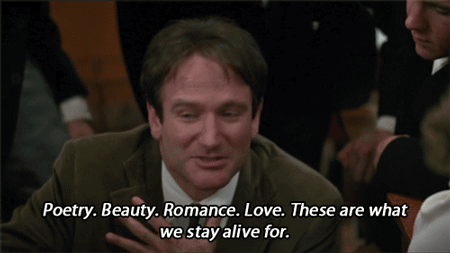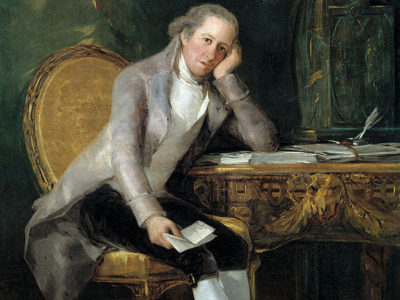The room was empty. What a warm way to start this semester’s poetry class. I had shown up 10 minutes early, but I expected at least one other person in the room.
I used the opportunity to have first pick of the seats and three bodies later, I had met all my peers. A little disappointing sure, but I still hadn’t met my teacher. I’d read her work in a different poetry class, and I knew she’d been published several times in her writing career. I craved to know the secret of grabbing the attention of the masses. Would she divulge the secrets to perfect diction and how to create raw emotion from a printed page?
An underwhelming squeak marked our professor’s entrance into the classroom. “I’m very 19th century,” were the first words out of her mouth, even before she introduced herself. This, of course, was met by a barely-audible groan by my new classmates. “You can write modern poetry on your own time,” she said next. I cringed internally. We’re all modern poets, why would we try and pretend to be something else? Aren’t I a “modern” poet because I am living a “modern” time?
Regardless of what “modern” meant to my poetry class professor, shouldn’t we write in the voices that we have and try to develop them further? I crafted my interior argument while she plowed on. “We’ll be focusing on high diction and developing your language skills,” she said. I’ve always thought of writing poetry to be a personal experience, one that involved very few limitations. I shifted my gaze to the sidewalk through the window while she continued. For the first time I reflected on the idea that I might have to suppress my actual feelings in order to keep my grades up.
I pushed that idea aside (for now) and thought there’s no way she would actually stifle creativity in a poetry class. What we experienced the first day was just “bad teacher/good teacher,” and once she had scared us into turning assignments in on time we would meet the real her. Right? Wrong.
I left that first poetry class feeling unsettled but still hopeful. Between Latin 2 and Intro to Stats, I needed time to unwind in a class meant for me. Reading and discussing creative writing in a poetry class that only met once a week seemed like the perfect option for me. Leafing through my textbook and the wide range of poets from different genres lifted my spirits. But the syllabus quickly pushed them back down. My poetry class professor listed no e-mail address, contact info, office hours or office. How was I supposed to talk to her if I had trouble with an assignment?
Not to mention my poetry class syllabus is often wrong, and my professor likes to tack on extra assignments during class. Once, she forgot she assigned us a two page single-spaced essay that really screwed up my laundry schedule.
Now, every Tuesday afternoon I battle whether I should make the trek for this three-hour poetry class. And once in class, I have to forcibly restrain myself from bashing my head into my desk. I have my own ideas and I want to keep them, yet if I don’t regurgitate the professor’s ideas, I’m wrong. Though I appreciate a different opinion, I don’t want it presented to me like I’m “wrong” if I disagree. Unfortunately, my GPA doesn’t appreciate my stubbornness.
A 300-word response paper on one poem per week and a 30-line poem per week is stressful, but by the end, I should know everything there is to know from anaphora to scansion, right? Of course not. Instead, I read 10 poets total, rotating six at a time, per week. (Sorry Dylan Thomas, I don’t exactly care that you think no one reads poetry for pleasure anymore. For the record, they do.) All of which, coincidentally I’m sure, lined up with my professor’s philosophies. The poems even stuck the same rhyme, meter and/or structure. I want to be excited, not on the verge of nodding off. Elizabeth Bishop, your villanelles might be clever, but I’m not sure I want to spend an hour dissecting one with four other people. I felt choked, like one narrow view of the unanswerable question: “What is poetry?” was being crammed down my throat.
Poetry has always been close to my heart. I never thought taking a poetry class would be something I didn’t enjoy. Poetry was how I spent my free time all throughout high school. But now I can’t muster up the energy to listen to something I love be ruined for three hours a week. I even went so far as to try and withdraw from the poetry class. Unfortunately, I’m utterly stuck.




















